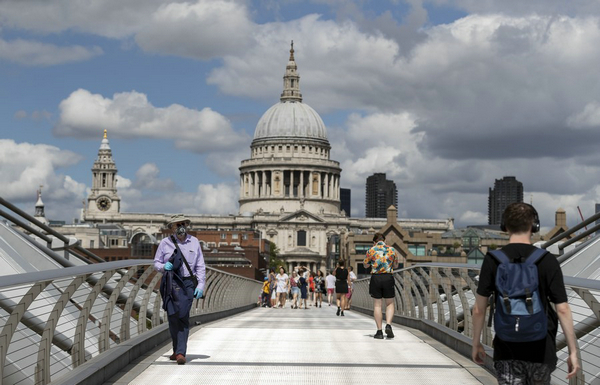Global tourism faces challenges on its journey to full recovery
XINHUA | Updated: 2020-08-10 07:34

As countries around the world get a grip on the novel coronavirus and cautiously begin reopening their economies, global tourism has seen a glimmer of hope, but it still faces an uphill struggle.
Tintagel Castle, a medieval fortification located in Cornwall in southwest England, considered to be the seat of the legendary King Arthur, is one of the most spectacular sites in Britain.
Annually, over 250,000 tourists visit the ruins that date back to around the 5th-7th century.
However, this year, the novel coronavirus outbreak has taken its toll on the famed tourist attraction and the number of visitors to the site has plunged.
When the British government announced a nationwide lockdown in March, Georgia Butters and her staff at Tintagel Castle were getting ready for the busy Easter period.
But after all the preparations for what is usually one of the busiest times of the year, the site was forced to close as the lockdown restricted travel and domestic tourism dropped instantly.
On July 4, the British government announced the phase-by-phase reopening of outdoor venues, bringing hope to Butters, English Heritage's head of historical properties in Cornwall.
To achieve the goal of keeping staff and visitors safe, the entire site reopened but with a new visiting system that features social distancing, including a one-way visiting route, limited access to the cafe, as well as timed ticketing for everybody.
These measures have obviously restricted the number of visitors and affected their travel experiences.
"At the moment we're looking at one-third of our peak capacity, which is a significant difference," says Butters.
The reduced number of visitors means that the surrounding area will also take a hit, as for many of the local communities in its vicinity visitors to Tintagel provide a living for them.
In other parts of the world, similar efforts are also underway to salvage the struggling tourism industry.
























